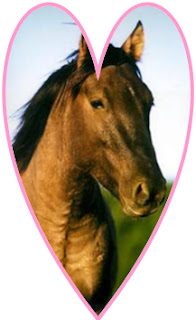
Mustang horses are known to have roamed the vast terrains of North America in large herds, so as to protect themselves from predators like wolves, coyotes, etc. These small, swift, surefooted, hardy horses range from an average size of 14"2 - 15"2 hands and 1,000 lbs or more in weight. They come in a variety of colors ranging from reddish-brown, bay, sorrel, brown or black in color. Mustangs have a life span of about 25 - 30 years. Let us have a look at some more interesting Mustang horse facts.
Interesting Mustang Horse Facts
Meaning of the Name
The name 'mustang' has been derived from the Spanish word 'mustengo', meaning 'ownerless beast' or 'stray horse'. These Mustang horses are also called wild horses because of their reckless nature. In fact, the word 'feral' suits them even better, which means wild and menacing.
Mustang Horse History
The Mustang horses that rambled across the North American grasslands in prehistoric times were referred to as dawn horses. However, at the end of the last ice age nearly 12,000 years ago, the Mustang population was wiped out from the American land. For several thousands of years, the American land was void of the thundering sound made by the hoofs of the Mustangs. Conquistadors from Spain once again introduced Mustangs to the American terrain in the 16th century. By the mid 1800s, there were millions of Mustangs rambling across the American land.
Symbol of the American West
The United States Congress in the year 1971 honored the Mustang horse with the title of "living symbols of the historic and pioneer spirit of the West, which continue to contribute to the diversity of life forms within the Nation and enrich the lives of the American people." A federal law was also passed in the same year regarding the ban placed on capturing, harming or killing Mustangs freely roaming on public land.
Mustang's Temperament
The Mustang is known for its intelligence and independent spirit. They have a mind of their own and do as they please. Their rugged toughness and endurance is truly remarkable! The amount of stamina they have is also amazing. Although wild and unpredictable by nature, these horses can be trained and tamed by patient and experienced handlers. They can be trained for horse racing, equine shows and competitions.
Mustang Herds
Mustang stallions head herds once they attain 6 years of age. There is a lot of struggle for dominance among the stallions and will gather their mares together and defend them from other stallions. They even try to steal mares from other Mustang herds by fighting with their competitor stallion. Their herd comprises of lots of mares and young herds. The young stallions chased off by the dominant stallion come together to form bachelor herds.
Plummeting Mustang Population
In the 1800s a great drought hit California, during which ranchers who found Mustangs to be a nuisance, got 40,000 Mustangs killed. Moreover, in the 1920s, the pet food industry slaughtered almost 500 Mustangs a day for pet food. In the 1930s, the processing of horse meat into chicken and pet food steeped to its peak with about 30 million pounds of horseflesh being canned. From the large numbers of 2.3 million Mustangs in the beginning of the century, the numbers stooped as low as 25,000 in the 1950s.
Save the Mustangs
Approximately 100 years ago, about 2 million Mustangs roamed the North American terrain. On the other hand, today we only have 25,000 Mustangs in the United States of America. More than half of the Mustangs existing in the US are in Nevada, with the rest of the Mustang population found in parts of Oregon, Wyoming and Montana. It's high time the we do something to prevent the numbers from plummeting further. As of today, the Mustang population is protected and managed by the Bureau of Land Management (BLM).
Mustangs are easily available through the Bureau of Land Management Wild Horse and Burro facilities. If you are looking to get one for yourself, then go for a young Mustang. The younger the better because they can be handled and trained easily. Hope this article on 'Mustang horse facts' was interesting and informative!





No comments:
Post a Comment